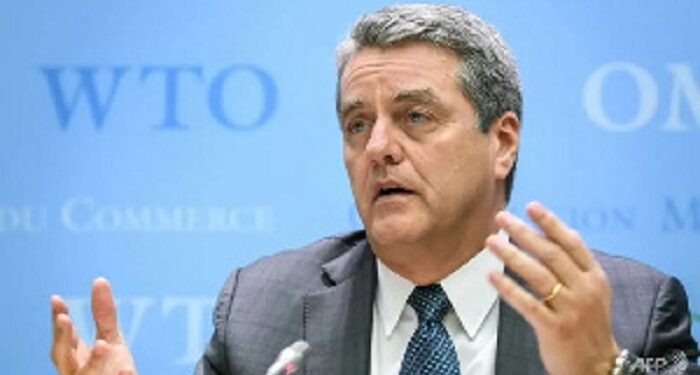The head of the World Trade Organization has said he will step down a year earlier than planned, at a crucial moment for the global economy.
Roberto Azevedo’s surprise departure comes as the WTO faces the impact of the coronavirus pandemic and criticism from US President Donald Trump.
Global trade has slumped and the world is braced for the worst downturn since the Great Depression.
Meanwhile, Mr Trump has accused the body of treating America unfairly.
Mr Azevedo said his early departure as the WTO’s director-general was a “personal decision” that was in the best interests of the organisation.
“The WTO may not be perfect, but it is indispensable all the same. It is what keeps us from a world where the law of the jungle prevails, at least as far as trade is concerned.”
The Trump administration has repeatedly accused the global trade watchdog of having strayed from its purpose to liberalise and protect markets, and that conditions around China’s entry into the organisation in 2001 have led to millions of American job losses.
Asked about Mr Azevedo’s exit, Mr Trump, who had previously said the US would leave the organisation if it didn’t change, said he was “OK with it”.
“We’ve been treated very badly… They treat China as a developing nation. Therefore China gets a lot of the benefits that the US doesn’t get,” he added.
Mr Azevedo’s departure comes at an especially difficult time for the WTO, with global trade expected to slump to historic lows as measures to slow the spread of Covid-19 shut down economic activity around the world.
At the same time the Geneva-based body last year saw one of its main functions, arbitrating trade disputes, hobbled by the US.
Washington’s dispute with the WTO has seen it block the appointment of judges to the organisation’s top court, called the Appellate Body, since December 2019. It means it has too few officials to rule on major trade disputes between countries.
Along with the US, other WTO members, including Japan and the European Union, have pushed for the WTO to make far-reaching reforms.
They argue that global trading rules need to reflect new realities, notably the rise of China as a powerful economy, and address problems such as state subsidies and forced technology transfers.































